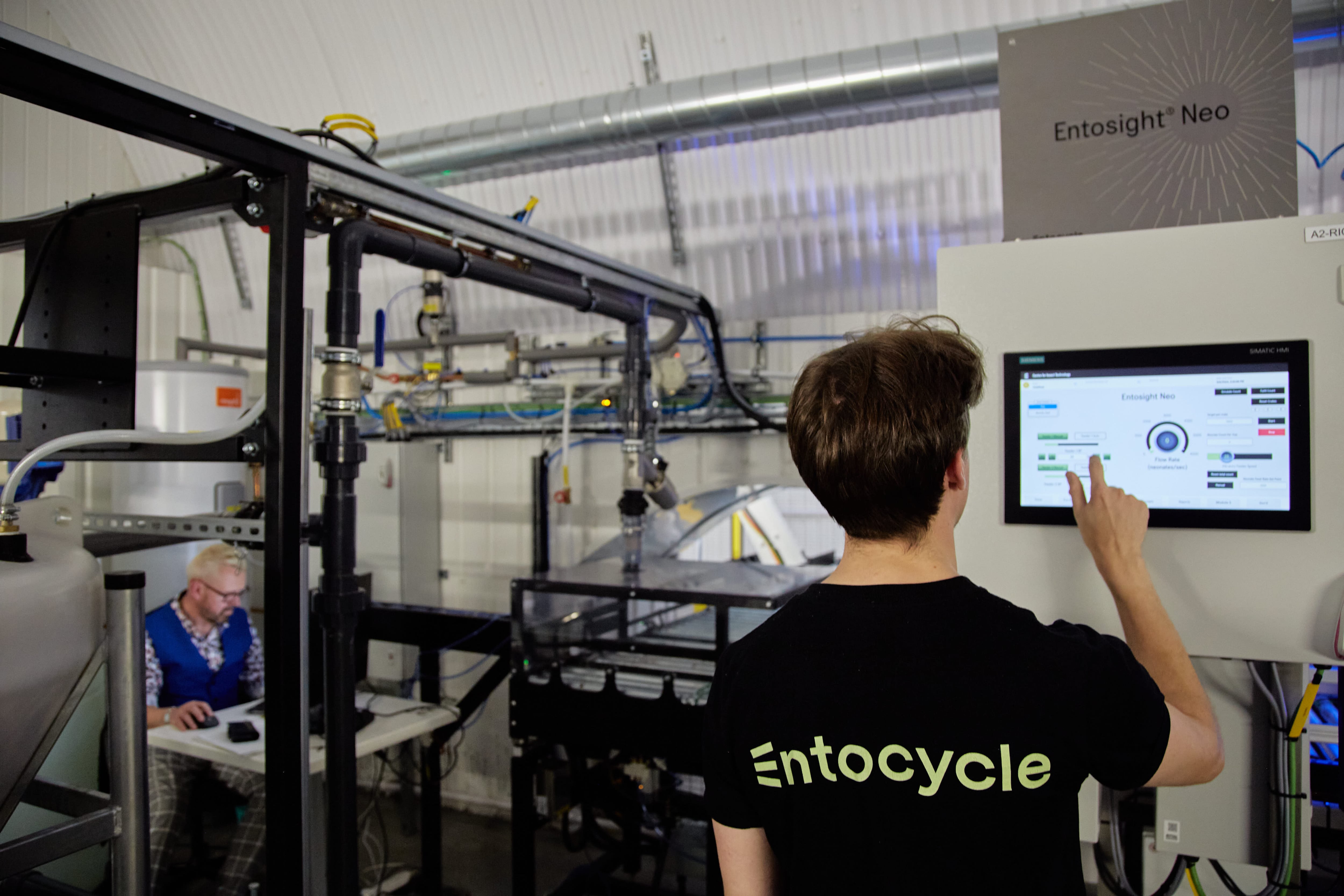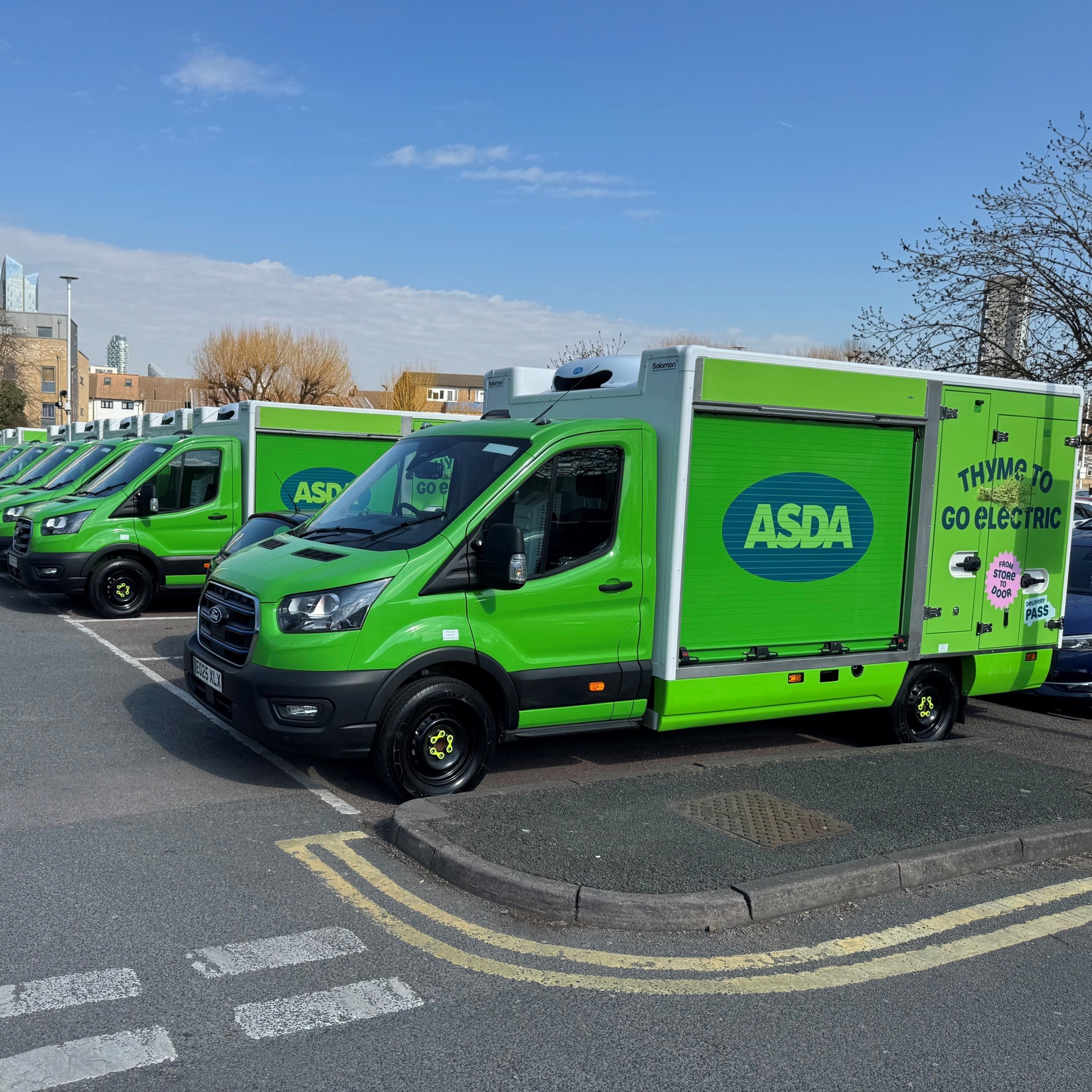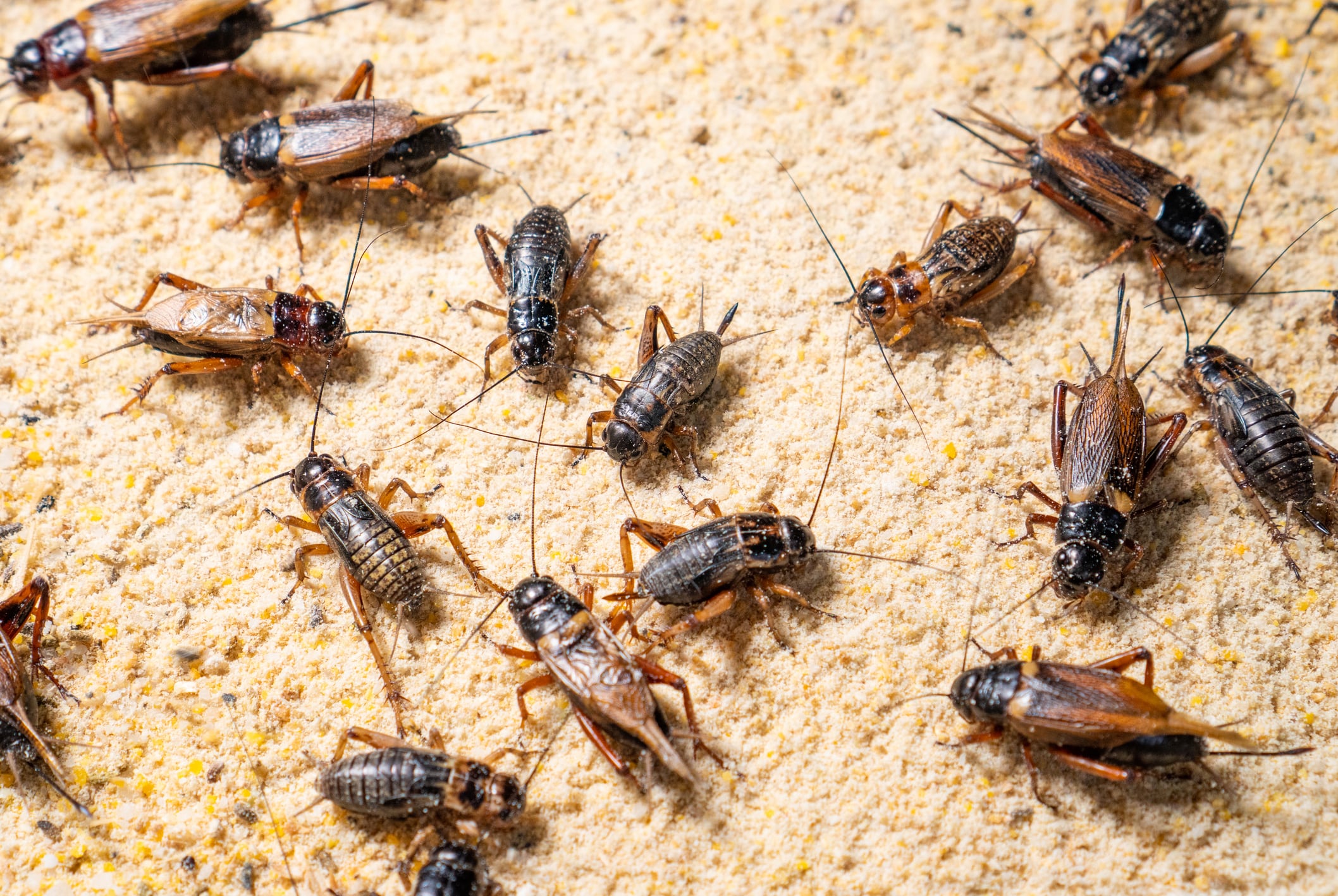Launched in 2017, Entocyle – which uses insects to turn food waste into sustainable protein for animal feed – worked with Siemens to create the UK’s first digitised insect farm showroom under four Victorian railway arches in London.
Using Siemens’ digital twin technology, the insect firm was able to virtually model the facility before physical construction began, allowing it to optimise the arch-shaped space and prevent costly mistakes during the build.
The facility now deploys Siemens AI and automation which will enable it to grow its production more easily and efficiently. The site features robotic arms, climate-controlled chambers and machine vision technology that counts and monitors 3,000 microscopic larvae a second with 96-100% accuracy.
Moreover, implementing digitalisation has reduced insect larval growth time and improved survival rates by 30%, demonstrating how the emerging insect bioconversion process can be accelerated and implemented at industrial scale in the future.
Now – one year on – Entocycle says its insect farm concept has proven it can help to address food waste and reduce our dependency on soybean.
Each year, approximately 3.3 million tonnes of imported soybean products enter the UK market for animal feed. Soy is an intensively grown crop, with high demands for resources – particularly energy, water, agrochemicals and soil – and has contributed significantly to deforestation, habitat loss and greenhouse gas emissions.
Entocycle is now looking to expand operations on an industrial scale, helping farms, agricultural businesses, and waste management companies to reduce carbon emissions worldwide while creating a blueprint for future food systems.
Matt Simonds, managing director at Entocycle, said: “We’ve spent a decade developing this concept, which has grown from equipment pieced together from hardware retailers to the bespoke and highly advanced factory we’re running today. The London Bridge centre proves our concept, which leverages the black soldier fly as nature’s recycler, that can be scaled around the world to help tackle the dual issue of food waste and sustainability issues in animal feed supply.
“In 10 years’ time, we expect Entocycle-designed farms to be processing millions of tonnes of food waste around the world, saving millions of tonnes of carbon emissions with it.”




